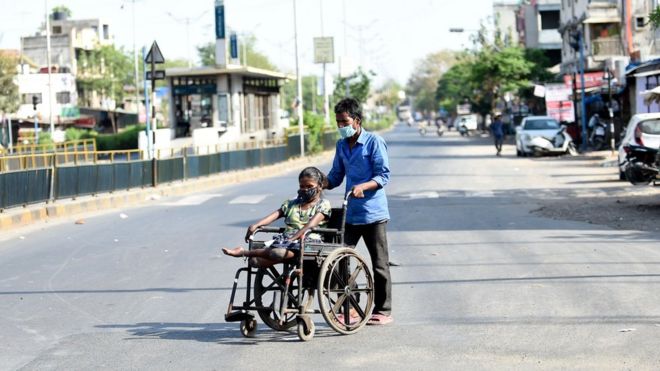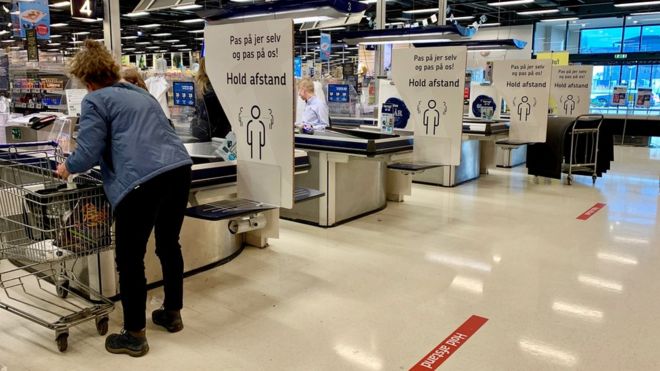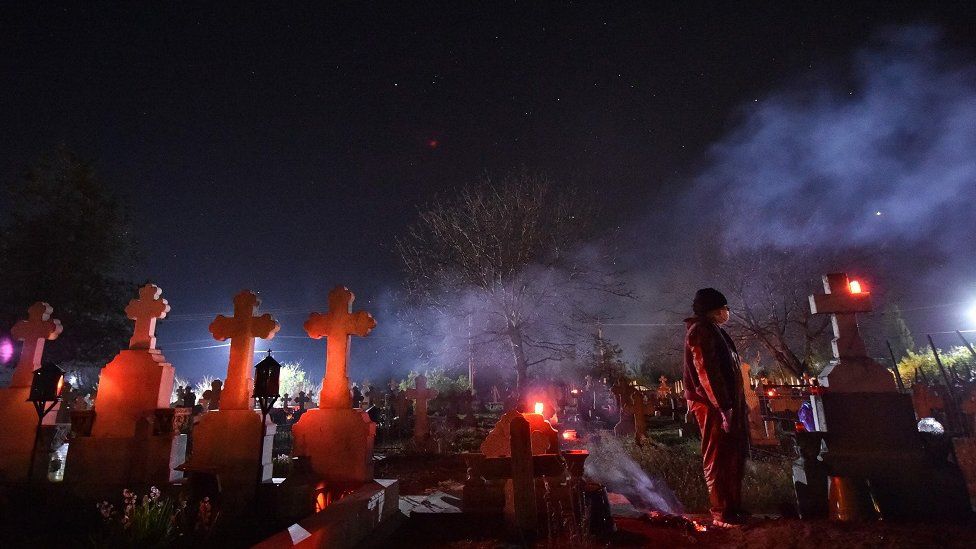Live Streaming
Program Highlight
Company Profile

International News (601)
April

Japanese authorities are rushing to house thousands of homeless people following the closure of internet cafes in several major cities. The cafes have become a common destination for those without secure housing. They're often open around the clock and many feature private booths, showers and entertainment, including games. But the businesses have been ordered to close their doors to help contain the spread of coronavirus. City officials say they have begun providing them with hotel rooms and other forms of temporary accommodation. In neighboring Saitama, authorities have also repurposed a sports hall for 200 people. Tokyo's government says welfare offices can send homeless residents to designated temporary accommodation, but Kazuhiro Gokan, a consultant with a local homeless support group, told the newspaper that many people had been turned away because of "a misunderstanding among administrators"//bbc
April

Streets across India have been deserted because of the lockdown (BBC)
India has decided to extend a strict nationwide lockdown imposed last month to stop the spread of the coronavirus.
On Saturday, Prime Minister Narendra Modi held a video conference with state ministers, and many of them urged the government to prolong the measure.
Delhi's chief minister said Mr. Modi had agreed to extend the lockdown, due to end on Tuesday, without giving details.
There are concerns about how the curbs are affecting the poor and the economy.
The spread of the virus has been varied in India with some states seeing bigger jumps in cases despite the shutdown.
Millions of migrant workers have been left jobless with the poorest suffering most.
India has confirmed 7,600 infections and 249 deaths, according to a tally by US-based Johns Hopkins University, which is tracking the disease globally. The true figures, however, are thought to be far higher.(BBC).
April
Coronavirus: Why Denmark Taking Steps to Open up Again
Written by Ani Hasanah
A supermarket in Funen has dividers and floor markings to separate shoppers (BBC)
Denmark is about to make its first move to relax restrictions imposed to fight coronavirus.
From Wednesday, children aged 11 and younger return to schools and nurseries, after a month of closures.
It's among the first European countries aiming to put the lockdown into gradual reverse, just as it was one of the first to impose restrictions.
"It's important we don't keep Denmark closed for longer than we need to," said Prime Minister Mette Frederiksen, as she announced the move last week.
The spread of coronavirus appears to be under control and the government wants to get the economy going again.
Compared with other European countries, Denmark was an early mover. A raft of restrictions was announced on 11 March, 12 days before measures were introduced in the UK.
Gatherings have been limited to 10 people, the workforce told to stay home, and the borders shut.
There is no stay-at-home order. Although bars, gyms, and hairdressers are closed, many shops remain open.
Health data suggests Denmark's efforts are paying off.
Some 6,000 cases and 260 coronavirus-related deaths have been recorded up to 11 April. Crucially, total numbers of hospital admissions and patients in intensive care have fallen since the beginning of the month. (BBC).
April
In Grim Milestone, United States Logs World's Highest COVID-19 Death Toll
Written by Ani HasanahPhoto: Reuters
The United States surpassed Italy on Saturday, April 11 as the country with the highest reported coronavirus death toll, recording more than 20,000 deaths since the outbreak began, according to a Reuters tally.
The grim milestone was reached as President Donald Trump mulled over when the country, which has registered more than half a million infections, might begin to see a return to normality.
The United States has seen its highest death tolls to date in the epidemic with roughly 2,000 deaths a day reported for the last four days in a row, a plurality of them in and around New York City.
Mr.Trump has said he wants life to return to normal as soon as possible and that the measures aimed at curbing the spread of the COVID-19 disease caused by the novel coronavirus carry their own economic and public-health cost.(CNA).
April
Coronavirus: Easter Celebrations Continue under Lockdown
Written by Ani Hasanah Worshippers gathered at a graveyard in Herasti, Romania, as part of traditional Orthodox celebrations on Saturday.(BBC)
Worshippers gathered at a graveyard in Herasti, Romania, as part of traditional Orthodox celebrations on Saturday.(BBC)
Christians around the world have continued on with Easter celebrations, experimenting with new forms of worship as many countries stay under lockdown.
Some clergy have been preaching to cameras in empty churches as their congregation watch services online this Easter Saturday.
But in other countries traditions continued as normal, ignoring calls for tougher restrictions to contain the coronavirus pandemic.
Meanwhile, Queen Elizabeth in an Easter message to the nation said the coronavirus will not overcome us.
Referencing the tradition of lighting candles to mark the occasion, she said: "As dark as death can be - particularly for those suffering from grief - light and life are greater."
It comes as the number of coronavirus deaths in UK hospitals reached 9,875
Speaking from Windsor Castle, the Queen said many religions had festivals celebrating light overcoming darkness, which often featured the lighting of candles.
The monarch, who is head of the Church of England, said: "As darkness falls on the Saturday before Easter Day, many Christians would normally light candles together.(BBC).
April
Boris Johnson walking in hospital as UK sees record COVID-19 death toll
Written by nuke
Prime Minister Boris Johnson was able to walk in hospital on Friday (Apr 10) about 24 hours after leaving intensive care treatment for COVID-19, as Britain recorded nearly 1,000 daily deaths from the virus for the first time.
"The Prime Minister has been able to do short walks, between periods of rest, as part of the care he is receiving to aid his recovery," a Downing Street spokesman said.
Johnson left intensive care at London's St Thomas' Hospital on Thursday evening, three days after being admitted due to his then-worsening condition.
News of the 55-year-old's improvement contrasted with the sobering release of the latest official statistics, showing Britain's COVID-19 death toll grew by 980 in the latest 24-hour period, its highest yet.
It brings the total number of fatalities from coronavirus in UK hospitals to nearly 9,000, while the number of confirmed cases in the country climbed close to 74,000//CNA
April
Asian markets rise after Fed stimulus boosts Wall Street
Written by nuke
Asian markets were mostly higher on Friday after the latest US coronavirus stimulus measures boosted Wall Street overnight. As quoted by AFP.com Friday March 10, in its latest attempt to ease the economic pain inflicted by the COVID-19 pandemic, the US Federal Reserve said it would pump $2.3 trillion through new lending programmes.
The strong close on Wall Street boosted Tokyo's benchmark Nikkei 225, which finished 0.8 percent higher. Mutsumi Kagawa, chief global strategist at Rakuten Securities stated the market remains in a "tug-of-war between those who are pessimistic about the pandemic and those who are optimistic, they don't want to miss a rare chance to buy" shares at low prices//AFP
April
Saudi Arabia sends home Indonesian pilgrims flouting immigration rules
Written by nuke
The Saudi government has sent home Indonesian umroh pilgrims and citizens found guilty of violating immigration rules, according to the Indonesian Foreign Ministry. They are scheduled to arrive in Indonesia April 9). The Saudi government has readied aircraft to send home our umroh pilgrims, including those overstaying since September 1 last year, Director of Indonesian Citizens and Legal Entities Protection of the Indonesian Foreign Ministry Judha Nugraha noted, during a press conference held via videoconference on Thursday as quoted by Antara. Medical tests will be conducted on the Indonesian nationals upon arrival in Indonesia despite having undergone similar tests in Saudi Arabia, he revealed. Meanwhile as many as 17 Indonesian members of the jamaah tabligh in India are still receiving medical treatment at a local hospital for coronavirus infection, while 10 others have recovered from the disease.
Nugraha said more than 984 Indonesian members of the jamaah tabligh are currently staying in nine countries including India, Pakistan, Bangladesh, the Philippines and Nepal. Indonesian foreign mininstry have difficulties in registering the members of the jamaah tabligh since they did not report to the missions. So the mininstry have made every effort to contact them and coordinated with their head office in Jakarta to register them. The Indonesian government on March 17, 2020 called on all Indonesians abroad to return home or face the risk of lockdown during the COVID-19 pandemic//Ant
April
Coronavirus: Worst economic crisis since 1930s depression, IMF says
Written by nuke
The coronavirus pandemic will turn global economic growth "sharply negative" this year, the head of the International Monetary Fund (IMF) has warned. Kristalina Georgieva said the world faced the worst economic crisis since the Great Depression of the 1930s. She forecast that 2021 would only see a partial recovery. Lockdowns imposed by governments have forced many companies to close and lay off staff.
Earlier this week, a UN study said 81% of the world's workforce of 3.3 billion people had had their place of work fully or partly closed because of the outbreak. Georgieva, the IMF's managing director, made her bleak assessment in remarks ahead of next week's IMF and World Bank Spring Meetings. Emerging markets and developing countries would be the hardest hit, she said, requiring hundreds of billions of dollars in foreign aid. Just three months ago, we expected positive per capita income growth in over 160 of our member countries in 2020, she said.
"Today, that number has been turned on its head: we now project that over 170 countries will experience negative per capita income growth this year.
Georgieva said that if the pandemic eased in the second half of 2020, the IMF expected to see a partial recovery next year. But she cautioned that the situation could also worsen//BBC
April

The Organization of the Petroleum Exporting Countries or OPEC and allies have agreed to cut output by more than a fifth, to counter the slump in demand caused by coronavirus lockdowns.
The group said it would cut output in May and June by 10 million barrels to help prop up prices. The cuts will then be eased gradually until April 2022.
OPEC Plus, made up of OPEC producers and allies including Russia, held talks on Thursday via video conference.
The group and its allies agreed to cut 10 million barrels a day or 10% of global supplies. Another 5 million barrels is expected to be cut by other nations.
It said the cuts would be eased to eight million barrels a day between July and December. Then they would be eased again to six million barrels between January 2021 and April 2022//BBC

